The Cockapoo Breed: Origins & Characteristics
The enchanting Cockapoo is a beloved combination of the charming Cocker Spaniel and the intelligent Poodle, making for a breed that is as endearing in its personality as it is in its appearance. As a designer hybrid, the Cockapoo offers the best of both worlds to those seeking a companion that is affectionate, smart, and adaptable to a variety of lifestyles. In this in-depth look into the world of Cockapoos, we will explore the breed’s history, genetics, and temperament, as well as dive into the important aspects of caring for a Cockapoo, such as addressing health concerns, grooming, and training.
Cockapoo Breed History
The Cockapoo breed is a popular designer dog that has its origins in the United States, dating back to the 1960s. As a hybrid of the Cocker Spaniel and Poodle breeds, the Cockapoo boasts the best of both worlds – the affectionate nature and sturdiness of the Cocker Spaniel, alongside the intelligence and low-shedding coat of the Poodle. This intentional crossbreeding was initially designed to produce a family companion dog that exhibited the desirable qualities of both breeds, while also catering to those with allergies due to the hypoallergenic nature of Poodle coats.
While the Cockapoo breed is often hailed as one of the first “designer dogs”, its history is not well-documented, and the development of the breed was not as strategic as other hybrids. Early breeders of Cockapoos are not known to have maintained detailed records, nor was there a structured breeding program. Nonetheless, the appeal of this friendly, adaptable, and intelligent hybrid has only grown over time.
Over the years, the Cockapoo has gained popularity not only in the United States but also in other countries such as Australia and the United Kingdom. The breed’s endearing temperament, combined with its low-shedding coat and potential suitability for allergy sufferers, has made the Cockapoo a popular choice for many households. Owing to its growing fan base, breed organizations and clubs have been established to promote responsible breeding practices and offer guidance to prospective owners.
There is considerable variation among Cockapoos in terms of size, coat type, and color. This can be attributed to the variation within the Cocker Spaniel and Poodle breeds, as well as the different generations of Cockapoo breeding. When a Cocker Spaniel is bred with a Poodle, their offspring are known as first-generation (F1) Cockapoos. Breeding two F1 Cockapoos results in second-generation (F2) Cockapoos, and so on. Each generation may exhibit somewhat different physical and behavioral traits, depending on the particular family line and the specific mixes involved.
The Cockapoo, a popular hybrid breed, originated in the United States in the 1960s by combining the charming and loving traits of both the Cocker Spaniel and the Poodle breeds. Despite not being recognized as a distinct breed by major kennel clubs, Cockapoos have seen a rise in popularity, not only for their adorable appearance but also for their genetic traits passed down from their parent breeds. They are versatile pets, making them great family companions, ranging in size and appearance from small to medium.
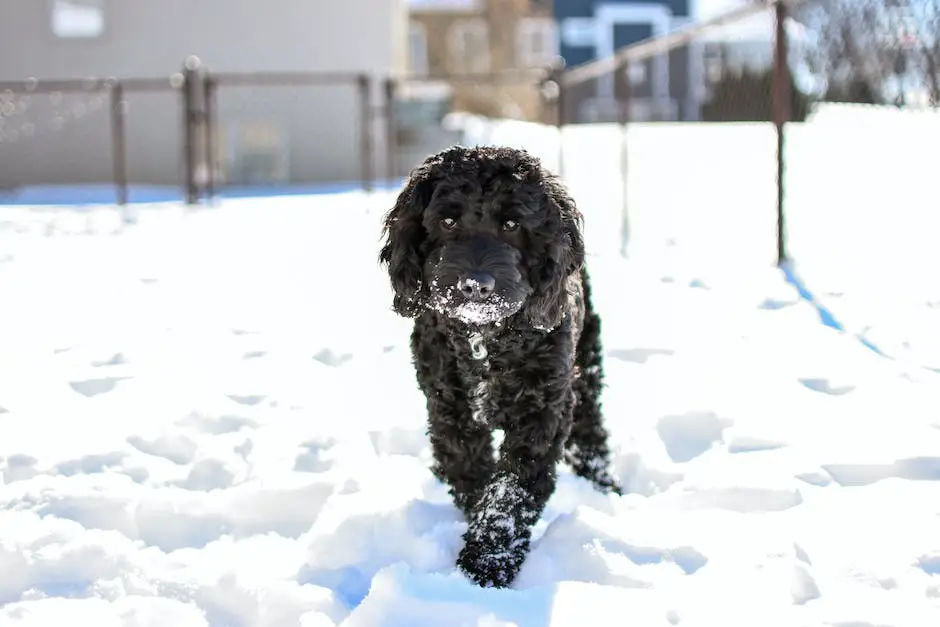
Genetic Traits of Cockapoos
Efforts are being made by various organizations to establish breed standards and define the Cockapoo’s characteristics consistently, which could bring further recognition to the breed and perhaps encourage more people to consider Cockapoos as a loving and low-shedding companion. As the passion of breed enthusiasts continues to grow and with a focus on responsible breeding practices, the Cockapoo is sure to remain a popular choice for dog lovers around the world.
One of the most notable genetic traits of the Cockapoo is their hypoallergenic coat, inherited from their Poodle parent. Poodles’ tightly curled fur tends to produce less dander, which tends to be the primary cause of allergens in pet lovers. The Cockapoo’s coat has the potential to be curly like the Poodle or wavy like the Cocker Spaniel. This breed’s fur is available in a variety of colors, including black, white, cream, and apricot. Their coats require regular grooming and brushing to keep it healthy and tangle-free.Cockapoos exhibit physical traits inherited from both of their parent breeds, which can vary significantly based on individual genetics. They typically have a well-proportioned and athletic build, combining the muscular structure of the Cocker Spaniel with the slender and elegant frame of the Poodle. Due to varying genetics, adult Cockapoos can range in size from 11 to 22 inches in height and weighing between 12 to 24 pounds, depending on the size of the Poodle parent involved in the breeding process.Another inherited trait from the Poodle genetics is their high level of intelligence. Poodles are known for being one of the most intelligent dog breeds, which makes them relatively easy to train. This, combined with the friendly and sociable nature of the Cocker Spaniel, makes Cockapoos highly trainable dogs, suitable for families and individuals with varying levels of dog ownership experience. Their genetic disposition towards being eager to please and form strong bonds with their owners also contributes to their adaptability and ability to fit in with a variety of households.Cockapoos, a mixed breed known for their robust health, often have fewer congenital health issues compared to their purebred counterparts. Their unique combination of Cocker Spaniel and Poodle genetics can result in an average lifespan of 12 to 15 years with proper care. However, it is still important to be aware of common health issues that may affect both parent breeds in order to ensure the well-being of your Cockapoo. Scheduling regular veterinarian visits and maintaining a healthy lifestyle are essential in order to provide your beloved companion with a long and happy life.

Cockapoo Temperament
Aside from their notable health benefits, the Cockapoo’s delightful temperament has also contributed to their growing popularity over the years. As a mix of the Cocker Spaniel and Poodle, Cockapoos inherit friendly and intelligent traits from both parent breeds. This results in a particularly affectionate, easy-to-train, and sociable companion. The origins of the breed can be traced back to breeders who sought to combine the best qualities of both Cocker Spaniels and Poodles, ultimately resulting in the lovable Cockapoo we know today.
The Cockapoo’s affectionate nature is deeply rooted in the Cocker Spaniel side of their heritage. Cocker Spaniels have long been known as loving and devoted companions, always eager to shower their owners with affection. The Poodle, being regarded as one of the most intelligent breeds, has also been known to form strong bonds with their owners. This combination of traits results in a dog that is kind, loving, and eager to please, making them the perfect companion for families and individuals alike.
Another aspect of the Cockapoo temperament is their playful, energetic spirit. Both the Cocker Spaniel and the Poodle are breeds that enjoy physical activity and are always up for a game of fetch or a walk in the park. These high-energy levels can be a double-edged sword, however, as it can sometimes lead to over-excitement or impatience. This is particularly true for younger Cockapoos, who may need to channel their energy into a more structured routine of training and exercise to avoid developing undesirable habits.
While the general temperament of the Cockapoo is known to be friendly, intelligent, and loyal, it is essential to remember that individual personalities can vary between dogs. Factors such as genetics, socialization, and training can influence a Cockapoo’s behavior and temperament. It is crucial for potential owners to spend time with their prospective Cockapoo puppy and make sure they’re a good match for their lifestyle and preferences.
The origin and background of Cockapoos are important factors in understanding their unique personality traits. As a hybrid breed resulting from the crossbreeding between Cocker Spaniels and Poodles, Cockapoos are known for their friendly and affectionate nature. Socialization plays a key role in the development of a well-rounded Cockapoo personality, as these dogs benefit greatly from interacting with other dogs and people from a young age. This exposure helps them develop confidence, adaptability, and a balanced temperament, providing a loving and loyal companion for their owners.
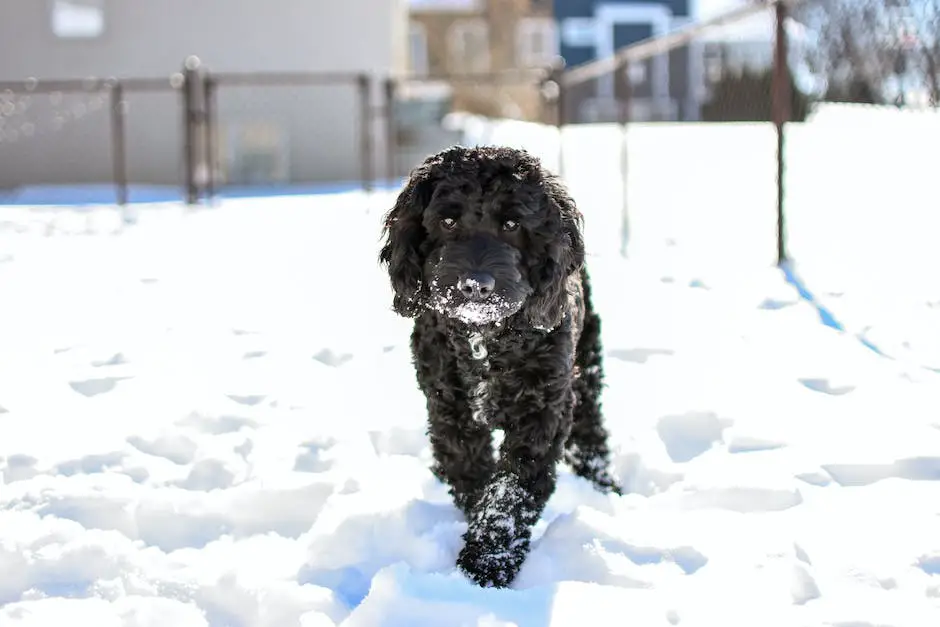
Cockapoo Health Issues
Despite being highly popular among enthusiasts and hobbyists, it is crucial to acknowledge that Cockapoos can still inherit various health issues from their parent breeds. Both Cocker Spaniels and Poodles are prone to certain genetic conditions, and it is essential for potential owners and enthusiasts to be aware of these potential health concerns. By understanding the origins of the Cockapoo and the common health issues they may face, individuals can take necessary steps to ensure a healthy and happy life for their beloved Cockapoo and further improve their skill and knowledge of this adorable hybrid breed.
Hip Dysplasia
One common health issue that may affect Cockapoos is hip dysplasia, a genetic condition where the hip joint does not fit together properly, causing discomfort and mobility issues. This disease is prevalent in both parent breeds, potentially making Cockapoos more susceptible. To help prevent and manage this condition, it is important to maintain a healthy weight for the dog, provide regular exercise, and consider supplements that promote joint health. Early screening for hip dysplasia also enables early intervention, which provides better management outcomes.
Progressive Retinal Atrophy (PRA)
Another health concern for Cockapoos is progressive retinal atrophy (PRA), an eye condition that can eventually lead to blindness. PRA stems from the degeneration of the retina, affecting both Cocker Spaniels and Poodles. To help prevent PRA, responsible breeders can test their breeding dogs for the specific genetic mutation causing the disease, thus eliminating the risk of passing it down to the offspring.
Ear Infections
Cockapoos are also prone to developing ear infections due to their floppy ears, which can trap moisture and create an ideal environment for bacteria and yeast growth. This problem can be managed by regular cleaning and grooming, ensuring that the dog’s ears are dry, especially after swimming or bathing. If you suspect your Cockapoo has an ear infection, it is crucial to consult a veterinarian for proper treatment.
Heart Issues
While less common, Cockapoos may also develop heart issues, such as patent ductus arteriosus (PDA) and dilated cardiomyopathy. PDA is a congenital heart defect that can cause coughing, breathing difficulties, and exercise intolerance if left untreated. In contrast, dilated cardiomyopathy is a heart muscle disease that causes the heart to enlarge, reducing its ability to pump blood effectively. To prevent and manage these conditions, it is essential to maintain a healthy lifestyle, adequate exercise, and take your Cockapoo for routine veterinary checkups. Early diagnosis and treatment are vital for improving the health outcomes of dogs with heart issues.
Responsible Breeding
To become skilled in understanding the origin of Cockapoos, it is first crucial to recognize the importance of responsible breeding practices. Ethical breeders can play a significant role in reducing the risk of health issues in Cockapoos. To ensure the integrity of these crossbreeds, breeders should carry out genetic testing and health screenings on their breeding dogs. This will guarantee that only healthy individuals are used in producing offspring. Prospective owners should also research and select a reputable breeder to minimize the likelihood of acquiring a dog with inheritable health problems.
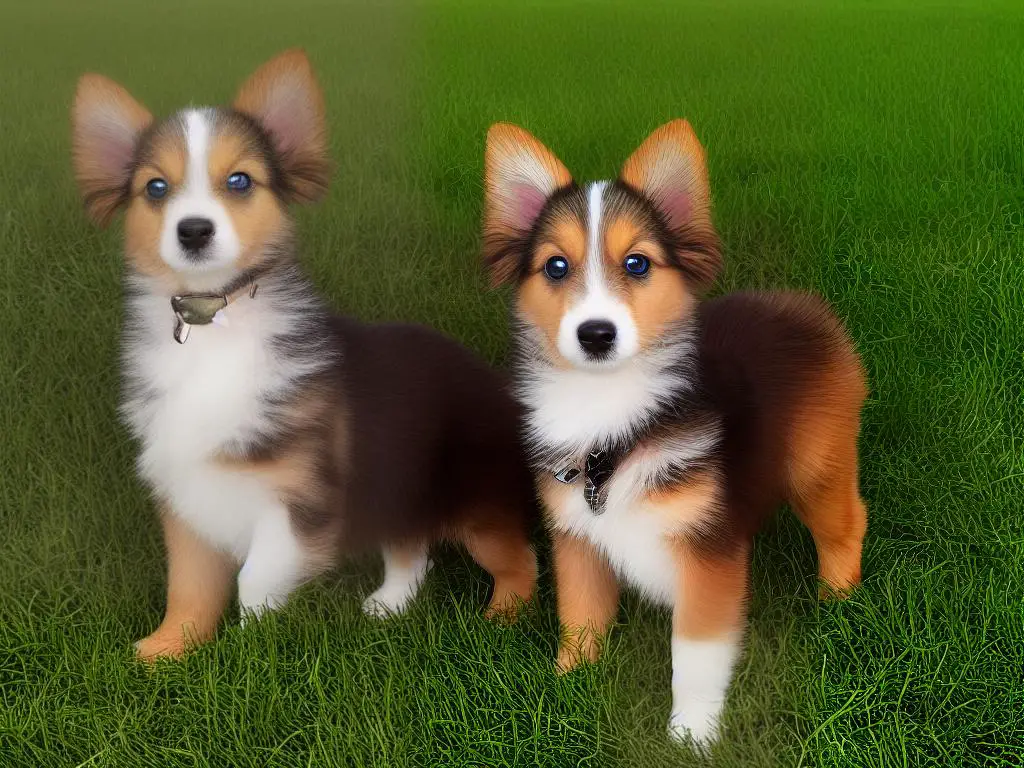
Caring for a Cockapoo
The delightful Cockapoo dogs originated as a crossbreed between a Cocker Spaniel and a Poodle. Boasting traits from both parent breeds, it’s essential to have a comprehensive understanding of the proper ways to care for these charming canines. By advocating for responsible breeding practices and appreciating the breed’s unique characteristics, both hobbyists and enthusiasts can become competent in Cockapoo origins and contribute positively to the breed’s future.
One crucial aspect of caring for a Cockapoo is grooming. These dogs have a unique coat that can vary in texture and length, ranging from tight curls to loose waves. It’s necessary to brush their coat at least three times a week to prevent matting and tangles. Regular grooming also helps control shedding and keeps the dog’s coat clean and healthy.When it comes to exercise requirements, the Cockapoo is an energetic and active breed that enjoys physical activities and mental stimulation. As descendants of the Cocker Spaniel, they were once bred for hunting purposes and therefore require a moderate amount of daily exercise, such as walks, interactive play, and training sessions. Providing your Cockapoo with sufficient exercise will help keep them physically fit, mentally stimulated, and prevent the development of behavioral problems.Diet is another essential aspect of caring for a Cockapoo. Since they are prone to weight gain, be mindful of the portion sizes and the type of food you provide for them. A high-quality diet that’s tailored to their age, weight, and activity level is ideal. Consulting with your veterinarian regarding the best food choice is always beneficial. It’s also crucial to provide fresh water for your pet at all times.Cockapoos are social animals and thrive on human interaction. Providing a loving and nurturing environment for your Cockapoo is vital to their overall well-being. These dogs are eager to please and highly trainable, which makes them excellent candidates for obedience, agility, and even therapy dog work. Regular positive reinforcement training sessions and socialization with other dogs and people will help your Cockapoo develop into a well-rounded companion.Cockapoos, a beloved hybrid breed resulting from the crossbreeding of a Cocker Spaniel and a Poodle, are known for their friendly and affectionate temperament. As enthusiasts or hobbyists looking to become skilled in Cockapoo origin, it is important to learn about their mixed heritage and the predisposition to certain health issues. Common health concerns for these dogs include ear infections, luxating patellas, and eye issues. By ensuring regular check-ups with a veterinarian, providing proper nutrition and exercise, and taking steps to keep your Cockapoo’s ears clean and dry, you can reduce the risk of these health problems and maintain their overall wellness.
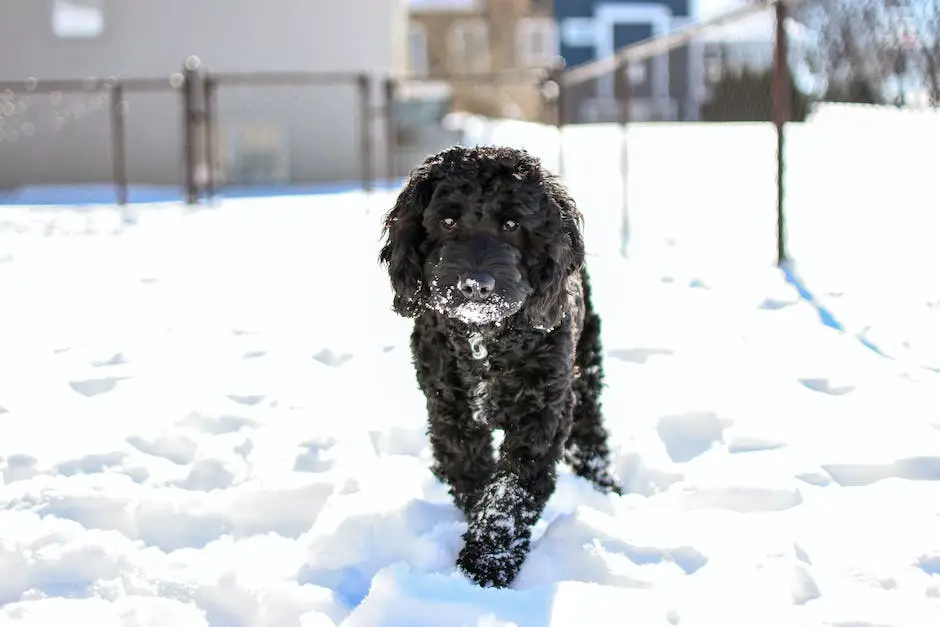
Cockapoo Training and Socialization
In addition to understanding their health needs, it is crucial to provide Cockapoos with proper training and socialization from an early age. These intelligent and sociable dogs thrive when they are well-rounded and adaptable in various environments. Adequate socialization ensures that Cockapoos can interact appropriately with other dogs, animals, and humans, which is essential for their role as companion animals. By focusing on the early development of your Cockapoo and paying close attention to their health and wellness, you will be better equipped to make your furry friend a cherished member of your family.One useful method to help socialize and train Cockapoos is to enroll them in puppy classes or obedience training courses. These classes expose the dog to various situations, people, and other dogs, teaching them how to behave around others while reinforcing positive behaviors. Puppy classes are particularly helpful because they allow Cockapoos to develop essential social skills with other dogs at a young age. Engaging in such structured activities also allows owners to bond with their Cockapoo and develop a better understanding of their pet’s personality and needs.Another essential aspect of training and socializing Cockapoos is exposing them to new experiences and environments regularly. Taking your Cockapoo on walks to different parks, dog-friendly stores, and other public places will help them become accustomed to various scenarios, people, and animals. This exposure will minimize any fear or anxiety they may have towards new situations, resulting in a confident and well-behaved pet. Since the Cockapoo is a mix of two breeds known for their trainability and eagerness to please, they will likely pick up on social cues and learn quickly and adapt to their surroundings with ease.In conjunction with socialization, practicing basic obedience training is essential in teaching your Cockapoo appropriate behavior. Teaching your dog commands such as sit, stay, and come will not only benefit the owner but also the dog itself. A well-trained and sociable Cockapoo will be easier to manage and less prone to undesirable behaviors, ultimately leading to a happier and harmonious home environment. Positive reinforcement techniques, such as praise, treats, and play, are particularly effective when training Cockapoos due to their sensitive nature and desire to please their owners.Establishing a consistent routine with your Cockapoo can significantly aid in the training and socialization process, as these dogs thrive on structure and predictability. Ensuring that your pet has designated times for meals, walks, playtime, and rest will help instill a sense of security. This stability can help your Cockapoo better adapt to new experiences and environments, as they will trust that their basic needs are met and feel confident in their surroundings. Offering appropriate social and training experiences to your Cockapoo, tailored to their unique origin, will result in a well-adjusted, well-behaved, and beloved companion.
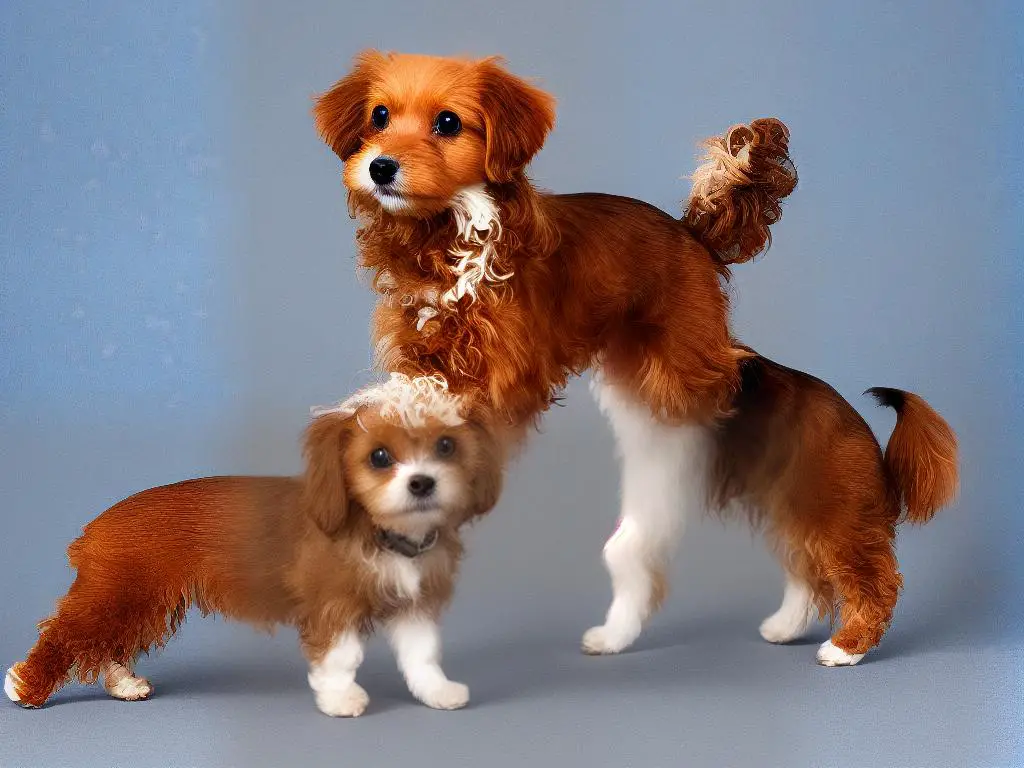
Finding a Responsible Cockapoo Breeder
To ensure the best outcome for your Cockapoo, finding a responsible breeder is crucial, as they will provide you with a healthy, well-adjusted puppy that reflects the best qualities of both the Cocker Spaniel and Poodle breeds.
A reputable breeder should prioritize health testing, which involves screening both parent breeds for genetic conditions and other health issues common in Cockapoos, such as hip dysplasia, eye disorders, and heart problems. By selecting a breeder who adheres to strict health testing protocols, you can significantly reduce the risk of your Cockapoo developing these health issues later in life and enjoy the benefits of a strong, loving bond with your furry companion.
A responsible Cockapoo breeder will also have extensive knowledge of both the Cocker Spaniel and Poodle breeds, as well as the specific crossing of their lineages. This includes understanding the breed characteristics, temperaments, and potential health issues of each parent breed. A well-informed breeder should be able to provide you with detailed information about each parent dog, including their health histories, pedigrees, and any awards or titles they may have achieved. This information will give you insight into the lineage and genetic background of your Cockapoo puppy, ensuring you select a dog with the traits most desirable for your household and lifestyle.
Ethical breeding practices are another important factor to consider when searching for a responsible Cockapoo breeder. This involves more than just eliminating puppy mills or backyard breeders; an ethical breeder will consciously select breeding pairs with the goal of promoting the long-term health, temperament, and appearance of the Cockapoo breed. They should also be genuinely invested in the well-being of their dogs and puppies, providing them with proper socialization, nutrition, and veterinary care and maintaining clean, comfortable living conditions.
When it comes to determining whether a breeder is responsible and reputable, one of the most telling signs can be how they handle customer interactions and post-adoption support. A good breeder will be genuinely interested in the homes their puppies are going to and should be eager to ask you questions about your lifestyle, living situation, and experience with dogs. They should also be willing to provide you with references from previous customers and should remain available to answer questions and provide guidance once you take your Cockapoo home.
Finally, it is essential to recognize that finding a responsible Cockapoo breeder may take time, and it is worth being patient and diligent in your search. Do not be afraid to ask breeders questions about their breeding practices, health testing protocols, and experience working with Cockapoos. Joining online forums, visiting dog shows, and attending breed-specific events can also help you connect with fellow Cockapoo enthusiasts and provide invaluable resources and recommendations in your search. By prioritizing a responsible breeder, you are investing in a healthier, happier future for both you and your new Cockapoo companion.

With their unique blend of Cocker Spaniel charm and Poodle intelligence, Cockapoos have emerged as a favorite among dog lovers everywhere. Their distinctive personalities, lovely coats, and adaptable nature ensure that Cockapoos are wonderful companions for many families. Whether you are considering bringing a Cockapoo into your home or are already the proud owner of one, understanding the breed’s history, genetics, and needs will help create a strong bond with your furry friend, setting the foundation for a lifetime of loyalty and love. Happy tails to you and your Cockapoo!
